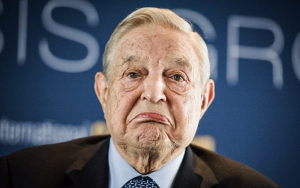The History of US-NATO Led Wars: “Exporting Democracy” through Acts of Subversion and Infiltration

All Global Research articles can be read in 51 languages by activating the Translate Website button below the author’s name.
To receive Global Research’s Daily Newsletter (selected articles), click here.
Click the share button above to email/forward this article to your friends and colleagues. Follow us on Instagram and Twitter and subscribe to our Telegram Channel. Feel free to repost and share widely Global Research articles.
***
The American-led NATO attacked Serbia and Montenegro with military aircraft between March to June 1999. The often indiscriminate manner of the NATO bombing resulted in more than 1,200 civilian deaths according to the Yugoslav Committee for Cooperation with UNICEF; but in fact the real number of civilian fatalities was significantly higher, and could have amounted to between 5,000 to 5,700 civilian lives lost as a result of less than three months (11 weeks) of NATO air raids.
Western interference in Serbia had been taking place for years prior to 1999.
The US and the European Union funnelled tens of millions of dollars into anti-government activities targeted at Serbian leader Slobodan Milosevic, whose defiance was unacceptable to Western politicians, mainly the Bill Clinton administration in Washington. Milosevic was pursuing independent foreign and domestic policies, the latter of which included his refusal to implement the neoliberal programs so heavily supported by the Americans and their European allies.
The Yugoslav city of Novi Sad on fire in 1999 (Licensed under CC BY-SA 3.0)
In the 18 months before Milosevic’s presidency ended in October 2000, the US and the EU spent about $80 million on such areas as the opposition media in Serbia. Western funding stretched further back, to the mid-1990s, when large sums of US and EU money started to enter Serbia. Washington pursued this policy mostly through USAID and the National Endowment for Democracy (NED), which are closely linked to the White House.
American and European funds assisted anti-government political groups like Otpor, which was based in the Serbian capital Belgrade and wanted to overthrow president Milosevic. Paul McCarthy, a senior program officer for the NED in central and eastern Europe, revealed that after the collapse of the Socialist Federal Republic of Yugoslavia in 1992 the NED was granting aid to anti-government organisations in Serbia, Montenegro and Kosovo, including to Otpor. In 1999 Otpor also received almost $2 million from another Washington-funded group, the International Republican Institute (IRI).
Image is from TruePublica
The NED was undertaking subversive activities alongside the Soros Open Society Foundations, established three decades ago by wealthy businessman George Soros, who is a notorious meddler, supporter of liberalism and Western imperialist expansion. Soros’ actions are often compatible with US government policy.
The NED and the Soros foundations infiltrated media organisations, think tanks, trade unions, etc. After 1990 Soros spent over $100 million on supporting anti-Milosevic groups with Otpor among the beneficiaries. Soros invested $50 million in an effort to purchase the Trepca mines and factories, located mostly in Kosovo.
The US promoted its “export of democracy” through organisations like the NED, USAID, the CIA, Freedom House and the Soros foundations. They would serve as a front for regime change in countries independent of Western policy. The method was not very different from the 1953 British and American-backed ousting of Mohammad Mosaddegh’s government in Iran, after the Iranian prime minister had nationalised the British oil firms in the country.
The CIA and MI6 funded anti-government demonstrations in Tehran, with the goals of forcing Mosaddegh from power and bringing Iran back under Western domination. More recently, Soros has regularly made use of “activists” by placing them on his payroll and they then stoke unrest in a particular nation designated for regime change.

Tanks in the streets of Tehran, 1953. Coup supporters celebrate victory in Tehran (Licensed under the Public Domain)
US government supported groups also propped up the “colour revolutions” such as occurred 20 years ago in Georgia, which shares a more than 500-mile border with Russia and is a former Soviet republic. Historian Moniz Bandeira wrote,
“After the Clinton administration left office, the Pentagon’s leadership began drafting policies to use Georgia as a key player in the neo-containment policy. The goal was to prevent Russia from dominating the Caucasus region once again”.
Between 2002 and 2004 the administration of George W. Bush engineered a project called the Georgia Train and Equip Program (GTEP), which involved US military training of Georgian troops; and from 2005, the Georgia Sustainment and Stability Operations Program (GSSOP), entailing the dispatchment of US Army Special Forces (Green Berets) and Marine Corps troops for the further training of Georgian military personnel. Georgian soldiers were involved in the US-led wars in Afghanistan and Iraq and they had participated in military activities in Kosovo.
As mentioned, in November 2003 in Georgia anti-government protests were taking place, dubbed in the West as the Rose revolution. The Wall Street Journal acknowledged that partaking in the demonstrations were “non-governmental organizations… supported by American and other Western foundations”.
Among those interfering in Georgia were Washington-funded groups such as USAID, the NED, Freedom House and the International Republican Institute. The Soros foundations, inevitably, were involved in instigating unrest in Georgia, and from August to October 2003 Soros spent $42 million in encouraging anti-government activities there.
The Soros foundations funded the Kmara opposition group in Georgia, as it had done with Otpor in Serbia. Kmara was supported too by the above-mentioned US government funded organisations. Moreover, the US Ambassador to Georgia, Richard Miles, had a considerable role in planning and organising the “Rose revolution” through Washington. The Americans feared should events take an unwanted turn for them in Georgia, that the country would seek closer ties with its neighbour Russia.
Georgia was believed to be a strategically important state by the West, partly because of its location in the South Caucasus beside Russia and partly because it was a fossil fuel corridor. The US National Security Strategy for a New Century stated in December 1999,
“A stable and prosperous Caucasus and Central Asia will facilitate rapid development and transport to international markets of large Caspian oil and gas resources with substantial US commercial participations. Resolution of regional conflicts such as Nagorno-Karabakh and Abkhazia is important for creating the stability necessary for development and transport of Caspian resources”.
Also in 1999 the US Congress sanctioned the Silk Road Strategy Act, to advance American interests and economic influence in the South Caucasus and Central Asia, and to oppose the ambitions of Russia, Iran and China in the regions. The Silk Road Strategy Act outlined that the Caucasus/Central Asia could provide major quantities of oil and natural gas to America, while reducing the nation’s dependence on Middle East resources.
In the elapsing time America’s reliance on oil, already monumental, has further increased. In 2012 there were 248 million vehicles in the US. By 2022 there was almost a vehicle for every person in the US (291 million vehicles for 335 million people), whereas in China at the end of 2022 there were around 415 million vehicles in the country for 1.41 billion people.
There are clearly more vehicles in China by comparison to America, but per capita they remain well behind the Americans. In 2020 most households in China still did not possess a car, though that will certainly have changed by 2030 in both Chinese urban and rural areas. In America, 91.7% of all households possessed at least one car by 2021, with about 60% of American households having two cars or more.
Per capita the US continues to be the nation that is easily the biggest consumer of fossil fuels in the world, which has been the case for decades. The US military on its own burns through more fossil fuels each year than entire countries like Denmark or Portugal, which are not poor states either.
A year after the protests in Georgia, another “colour revolution” took place this time in Ukraine in November 2004, which was titled the Orange revolution by the Western media. Bandeira noted “just as in Georgia the movement [in Ukraine] was triggered by activists, militants of the organization PORA (It’s time) and of other American and European NGOs, including Vidrodzhenya (Revival), once again sponsored by George Soros, Freedom House, the Poland-America-Ukraine Cooperation Initiative, USAID, and the National Endowment for Democracy, which sustained the campaign of the opposition candidate, Viktor Yushchenko“.

Orange-clad demonstrators gather in the Independence Square in Kyiv on 22 November 2004. (Licensed under CC BY-SA 3.0)
Since 1991, the US has spent many billions of dollars in an attempt to align former Soviet republics with the West, like Ukraine. This has usually involved funding the media to enable psychological warfare operations. The Pentagon pursued such a policy through the United States Army Civil Affairs and Psychological Operations Command (USACAPOC), the State Department and groups like Freedom House and the NED.
Bandeira wrote, “The Russian Foreign Minister Sergey Lavrov stated that the conflict in Ukraine had been triggered through outside pressure, in order to force Kiev to make a decision in favor of the West”. Ukraine gained an increased significance for the West this century as NATO continued with its reckless and provocative enlargement eastwards. Over the course of two years, 2003 and 2004, Bush’s government spent over $65 million in support of subversive political groups in Ukraine, including on a tour led by presidential hopeful Yushchenko, in order for him to meet authorities in Washington to convince them he would win the 2004 election against Viktor Yanukovych.
The International Republican Institute, overseen by US Senator John McCain, was also sponsoring Yushchenko’s campaign. The wife of Yushchenko, Kateryna Yushchenko, is an American citizen and she had worked in the White House in the Public Liaison Office during Ronald Reagan’s presidency in the 1980s. Yushchenko himself had worked in a far-right think tank, the Heritage Foundation, while his wife was a director with the neoconservative think tank, the New Atlantic Initiative.
McCain and Soros had business dealings together and were friends. Upon McCain’s death in 2018, Soros wrote that he was “a brave warrior for human rights who stood up against repression and torture.” Soros forgot somehow that McCain had supported a number of unprovoked US wars including against Afghanistan, Iraq and Libya.
After the Soviet Union’s 1991 disintegration, Soros’ Open Society Foundations poured tens of millions of dollars into Ukraine and invested money in other ex-Soviet republics, so as to make them “open” and “democratic”, in other words open to Western exploitation. From 1991 to 2011 the Soros foundations dispensed with $976 million in eastern European states and former Warsaw Pact countries. Some of the biggest recipients of this cash were publishers along with academic and cultural groups.
During an interview with CNN in 2014, Soros said that in 1989 he provided funds to dissidents in nations such as Poland and Czechoslovakia, when they were still part of the Warsaw Pact. Soros admitted that prior to Ukraine separating from the Soviet Union, he had created a foundation in Ukraine that was completely operational. Bandeira wrote that later on this Soros foundation “played an important role in the protests that erupted in Maidan Nezalezhnosti (Independence Square) after November 2013 and prompted the overthrow of President Yanukovych”.
Relating to Syria, president Bush, by way of an authorisation or finding in May 2007, permitted the CIA to implement covert actions to undermine and topple Bashar al-Assad’s government in Damascus. The desire to remove president Assad continued from 2009 into the administration of Bush’s successor, Barack Obama, as the latter attempted to sow disharmony in Syria while he repeatedly called for Assad to resign.
Obama was supported in his remarks by European leaders like Germany’s Angela Merkel. She had previously provided strong backing for the 2003 US invasion of Iraq, in spite of misgivings from most of the German public and from within her own party, the Christian Democratic Union.
One key reason for Washington’s desire to oust Assad was that he had rejected their proposal for a gas pipeline running through Syrian land, that was to eventually join up with the planned Nabucco gas pipeline, which was designated to transport gas from the Caspian Sea to the Middle East and Europe. Assad was pursuing policies independent of the Western liberal order and, partly because of this, the Syrian leader was demonised by American and European politicians who wanted regime change in Syria.
*
Note to readers: Please click the share button above. Follow us on Instagram and Twitter and subscribe to our Telegram Channel. Feel free to repost and share widely Global Research articles.
This article was originally published on Geopolitica.RU.
Shane Quinn obtained an honors journalism degree and he writes primarily on foreign affairs and historical subjects. He is a Research Associate of the Centre for Research on Globalization (CRG).
Sources
Luiz Alberto Moniz Bandeira, The Second Cold War: Geopolitics and the Strategic Dimensions of the USA (Springer; 1st edition, 23 June 2017)
“China registers 415 million motor vehicles, 500 million drivers”, Xinhua, 8 December 2022
Elizabeth Rivelli, “What is average mileage per year?”, Caranddriver, 24 February 2023
Luiz Alberto Moniz Bandeira, The World Disorder: US Hegemony, Proxy Wars, Terrorism and Humanitarian Catastrophes (Springer; 1st edition, 4 February 2019)
Charlotte Potts, “Merkel speaks; DW checks the facts”, Deutsche Welle, 30 July 2016
Jacob Grandstaff, “George Soros, John McCain, and Immigration”, Capital Research Center, 10 July 2017
Featured image is from Geopolitica.RU



